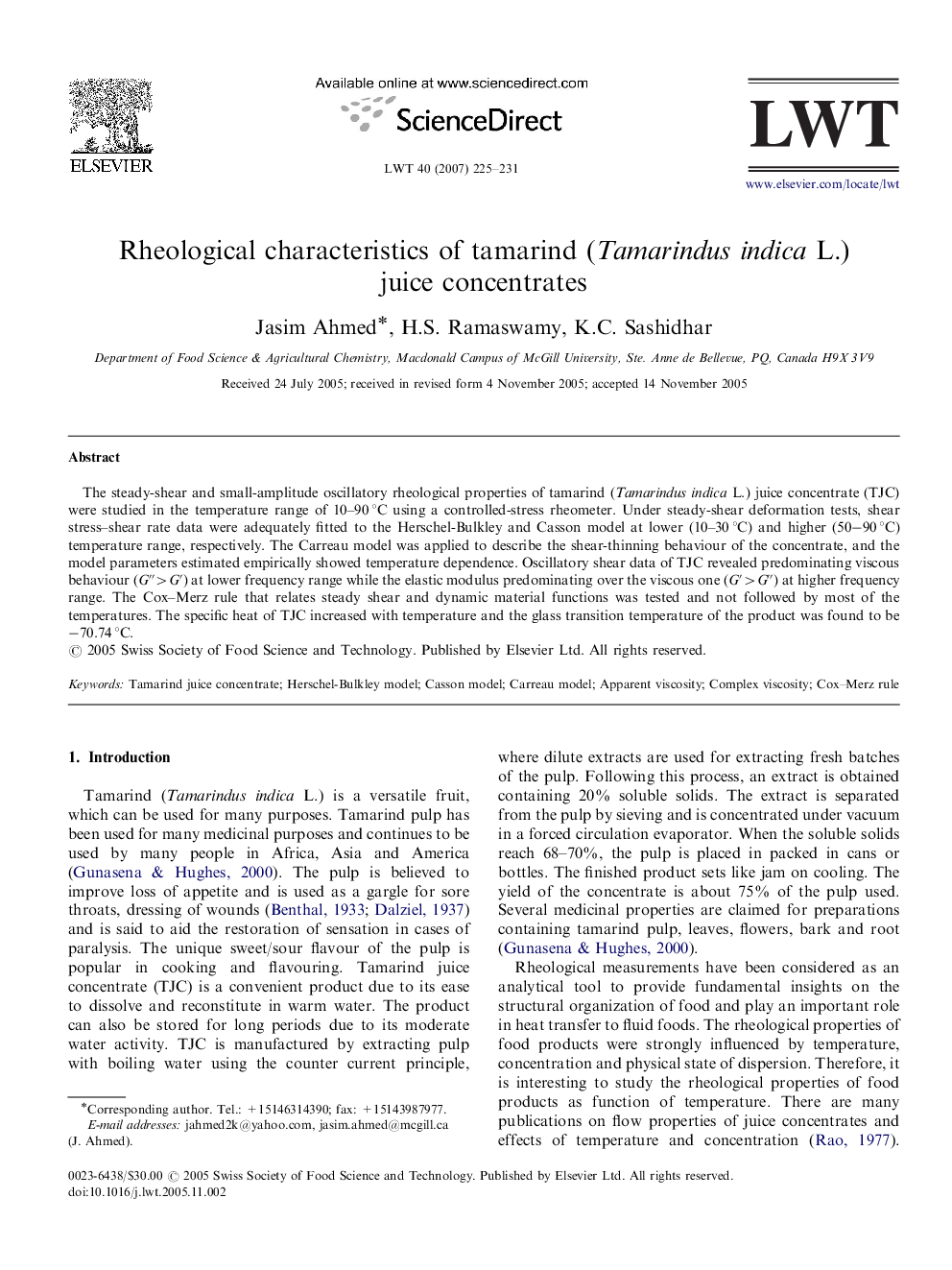| Article ID | Journal | Published Year | Pages | File Type |
|---|---|---|---|---|
| 4565549 | LWT - Food Science and Technology | 2007 | 7 Pages |
The steady-shear and small-amplitude oscillatory rheological properties of tamarind (Tamarindus indica L.) juice concentrate (TJC) were studied in the temperature range of 10–90 °C using a controlled-stress rheometer. Under steady-shear deformation tests, shear stress–shear rate data were adequately fitted to the Herschel-Bulkley and Casson model at lower (10–30 °C) and higher (50−90 °C) temperature range, respectively. The Carreau model was applied to describe the shear-thinning behaviour of the concentrate, and the model parameters estimated empirically showed temperature dependence. Oscillatory shear data of TJC revealed predominating viscous behaviour (G″>G′) at lower frequency range while the elastic modulus predominating over the viscous one (G′>G″) at higher frequency range. The Cox–Merz rule that relates steady shear and dynamic material functions was tested and not followed by most of the temperatures. The specific heat of TJC increased with temperature and the glass transition temperature of the product was found to be −70.74 °C.
